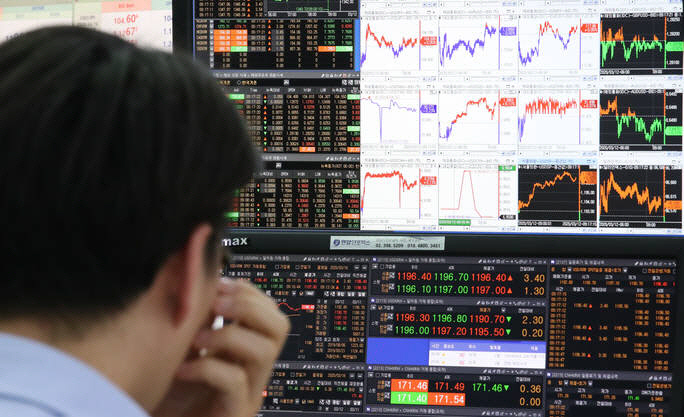
|
|
▲Photo = Union |
[에너지경제신문=윤하늘 기자] As the financial authorities officially resumed short selling in March, attention is drawn to the stock prices of large-cap stocks such as Samsung Electronics and Hyundai Motor, which have increased lending transactions. Experts predict that the KOSPI’s market capitalization will be slightly adjusted after the resumption of short selling, but the impact will not be significant.
According to the Financial Investment Association on the 17th, the balance of the loan as of the 14th of this month is 47,3902 billion won. The balance balance is the stock that the investor borrows and does not pay back. It is a leading indicator of short-selling transactions, where stocks are expected to decline by lending and selling them, then buying them at low prices and repaying them. In other words, short-term adjustments are inevitable if short selling is resumed, as there are still more than 47 trillion won in balance.
In particular, while breaking the highest price this year, the balance of large stocks of KOSPI such as Hyundai Motor and Samsung Electronics, which are leading the KOSPI, surged.
Looking at the top 10 lending stocks, Hyundai Motor’s lending balance was KRW 1.323.6 billion, up 41.11% from a month ago. The balances of Samsung Biologics (36.23%), Kakao (20.16%), SK Hynix (2.70%), and Samsung Electronics (1.74%) also surged. On the KOSDAQ, Alteogen’s balance has increased by 61.77% this year.
The stock market is predominant in the opinion that the market will not fluctuate even after the resurgence of short selling. As the balance of loans is concentrated in the top stocks of the KOSPI market capitalization such as Samsung Electronics and Hyundai Motors, which led the recent KOSPI surge, the possibility of a sharp decline even if short selling is resumed.
In fact, even during the past economic crisis, when the ban on short selling was lifted, the stock market did not suffer a big impact. Financial authorities banned short selling for eight months and three months, respectively, during the 2008 global financial crisis and the 2011 European financial crisis. When the short selling ban in 2008 revived on June 1, 2009, the KOSPI rose 1.38% and remained at a similar level on July 1, a month later. In 2011, the KOSPI also saw a 5% decline on the day short selling resumed, but recovered to the average level after 15 days.
Lee Jae-sun, a researcher at Hana Financial Investment, said, “In the case of large-cap KOSPI stocks, there are futures, so even if you resume short selling, the stock price may decline for a short period, but it will rebound again.” did.
However, it is analyzed that KOSDAQ small and medium-cap stocks and theme stocks that have soared in a short period of time will be hit hard.
Hwang Se-woon, a research fellow at the Capital Markets Research Institute, said, “Small and medium-cap stocks and theme stocks that have risen excessively in stock prices are expected to have a relatively high volatility. I can see it.”
Noh-gil, a researcher at NH Investment & Securities, said, “Among the KOSPI 200 and KOSDAQ 150, which have soared since the short sale, the KOSPI 200 has returned to the normal level, but the overvaluation trend for the KOSDAQ 150 is getting deeper.” The impact will be great.”
Reporter Haneul Yoon [email protected]
